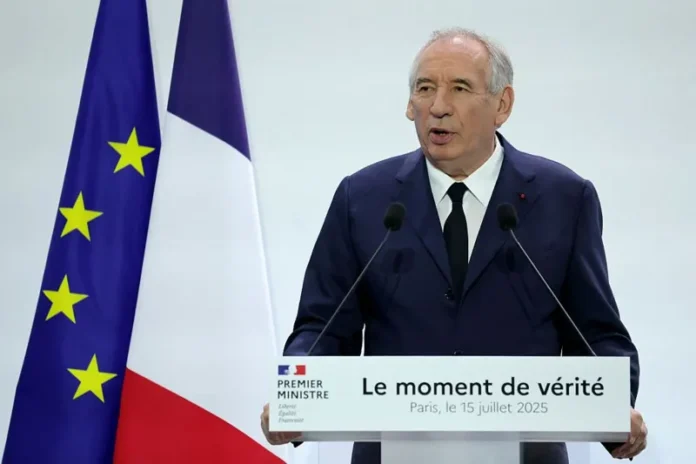
France’s centrist Prime Minister François Bayrou has proposed eliminating two public holidays as part of sweeping measures to curb the country’s mounting public deficit and spiralling debt, sparking immediate backlash across the political spectrum.
Outlining the 2026 budget on Tuesday, Bayrou named Easter Monday and 8 May — Victory in Europe (VE) Day — as possible candidates for removal, though he signaled openness to alternatives. The proposal, which forms part of a broader austerity package, aims to increase national productivity and reduce France’s ballooning €3.3 trillion public debt.
“The entire nation has to work more so that the activity of the country as a whole increases, and so that France’s situation improves,” Bayrou told lawmakers. “Everyone will have to contribute to the effort.”
France’s public deficit currently stands at 5.8% of GDP, nearly double the 3% threshold mandated by European Union fiscal rules. Bayrou’s goal is to reduce the deficit to 4.6% in 2026 and reach the EU target by 2029. His proposal includes €43.8 billion in budget cuts.
The controversial package also features an across-the-board spending freeze, with exceptions for debt servicing and defense. President Emmanuel Macron has demanded an increase of €3.5 billion in defense spending next year, with more expected by 2027.
Other austerity measures include freezing pension levels in 2025, capping welfare spending, reducing healthcare expenditure by €5 billion, freezing civil servant salaries, and cutting public sector jobs.
Opposition leaders across the political divide have condemned the plan, particularly the scrapping of public holidays, which they argue is an attack on national heritage and workers’ rights.
“Cancelling two holidays is a direct attack on our history, our roots, and on working France,” said Jordan Bardella of the far-right National Rally (RN). “No RN MP will accept a measure that amounts to provocation.”
Fabien Roussel of the French Communist Party called it “an organised hold-up,” while Jean-Luc Mélenchon of La France Insoumise (LFI) demanded Bayrou’s resignation, calling the proposal “destruction and injustice.”
Socialist MP Boris Vallaud also blasted the budget as “brutal and unacceptable,” accusing the government of disproportionately burdening those with less means while sparing the wealthy.
With a hung parliament following last year’s snap election, Bayrou lacks the necessary support from either the left or right to pass the budget outright. If a consensus is not reached by October, when the budget is presented to parliament, he could face a no-confidence vote similar to the one that ousted his predecessor, Michel Barnier.
Bayrou remains defiant, insisting the cuts are necessary to avoid a national crisis. “France is on a cliff edge,” he warned. “This debt is a mortal danger. We cannot remain addicted to public spending.”